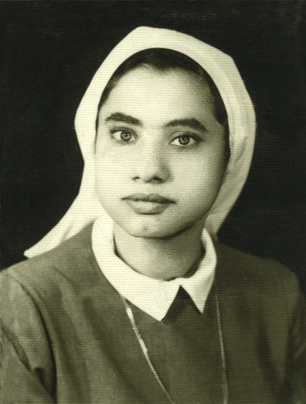 |
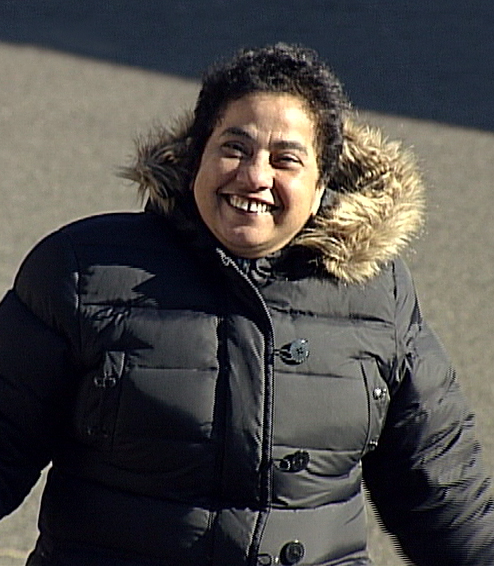 |
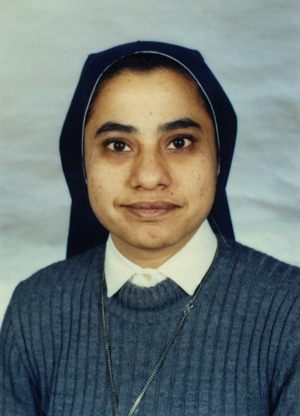 |
1958 - 2011
Fadia was a nun for twenty five years, dedicated to helping the poor in Africa. Born and living in Egypt, Fadia joined the Sisters of Notre Dame convent in France while still a teenager. Much of her work in Africa was serving as a nursing assistant to doctors.
While in Egypt, however, she and the other nuns were becoming increasingly subjected to persecution because of accusations that they were promoting Christianity. Fadia's response was that they were not teaching Christianity; they were teaching people how to live. Unspeakable acts of mutilation were committed by radical Muslims, who cut Fadia's tongue; many nuns in her convent had their arms, legs or head decapitated.
Since threats to the nuns extended to members of their families as well, Fadia made the decision to leave Egypt and seek refuge in the United States. She and her mother were granted asylum.
As is the case with many refugees, Fadia and her mother had no specific destination in the U.S. and found themselves close to Newark International Airport in Elizabeth. Being homeless and hungry, they suffered greatly. Fadia did not yet speak English, a factor that made finding assistance that much more difficult.
Hope blossomed once she found the love and care that St. Joseph's had to offer. St. Joseph's stayed with her, making sure she had food, clothing and medicine for her mother and herself. Sister Mary Eleanor guided her through the difficult process of applying for government assistance. Yes, Fadia received many benefits from St. Joseph's. And St. Joseph's soon learned that it would be greatly enriched by the friendship of Fadia Riad.
Although Fadia had to leave her religious community, her deep commitment and dedication to ministry never changed. When she wanted to tell someone how dearly she loved them, she would say "I love you next to Jesus." She once shared with a friend that she prayed to Jesus that she would suffer like he did, something she talked about when she was going through her many hard times.
She talked about her experiences as a nun. She told of the poor children in Sudan who had cancer, but because they were dying of hunger they were denied treatment. If money was sent to people to help them buy food so they could be eligible to receive treatment, the money would be confiscated before it arrived. People had to find someone out of the country to mail it to and that person would then bring the money to them.
She was a woman of many talents,
many of which she taught to the poor so they could make money to live.
Fadia was outstanding in painting, crotcheting, knitting and embroidery.
We learned that Fadia, doing embroidery on a beautiful tablecloth she
was creating for a dear friend from St. Joseph's, only had evening hours
available to work on the project. She could not afford to pay a higher
electric bill in order to provide the light necessary for such intricate
work, so at night Fadia would sit outside under a street light, often
in the bitter cold, to do the embroidery.
Fadia had a network of people in Europe, Africa, and America that we called
her world prayer network. One of her new friends was pregnant and her
baby needed heart surgery. The baby's prognosis was poor, so Fadia shared
the story with her world prayer network. The baby had several surgeries
before and after his birth. "Lucky Leo" is now the cutest seven-year-old
you've ever seen.
Fadia worked extremely hard to make her life better. Sharon Kessler, who with her husband were loyal volunteers at St. Joseph's, was able to line up a number of housecleaning clients for Fadia. In addition, she began to work as a bus aid for Harold Kessler's business. While working these two jobs, Fadia took a class to receive a certificate as a nurses aide. She had to take the class in Spanish because it was the only one that fit into her busy schedule. This certification led to Fadia finding a job that was an excellent fit for her nursing experience and her extraordinary capacity for giving comfort and love. She used that talent at her new full time job at the Center for Hope Hospice and Palliative Care in Scotch Plains. She was described as "simply marvelous" in her care of the patients.
In part because she also kept her other full time job as a bus aid, Fadia was at last able to relieve some of the stress of economic survival that had put such a burden on her. Her dream of actually taking a vacation began to look like a real possibility. And she moved into a small apartment by the river in Cranford that she loved very much. Things were definitely looking up for this beautiful soul who had suffered so much and had worked so hard.
Then Fadia was diagnosed with brain cancer.
The doctors gave her two years to live. Within that two years she never
gave up and worked as hard as she possibly could. And she continued to
help others. During all of her hospital visits she continued with her
ministry of showing others who God is. She helped those who didn't believe
in God to begin to believe.
She kept pushing herself as far as she could. Having an extremely hard time walking, she would walk two miles to the store and back. Along the way she would stop and talk to people. Partly because of Fadia's kind eyes, radiant smile, and caring nature, strangers quickly became friends. The police officers in Cranford and Kenilworth knew her very well because she frequently would fall and they were always there to help her up. They were wonderful to her.
Everywhere she went she touched people's hearts and there was always someone there for her when she was going through hard times. She gave of herself and wouldn't hesitate one minute to give up anything she had if someone else needed it. If someone needed money, she would give it to them and she would skip a meal. She would give clothes, furniture, anything that they needed. And every day we were all the recipients of her positive spirit and her beautiful smile.
Fadia passed away on Sept. 20, 2011. At her funeral service, her family was in awe of all the people who came to pay their last respects, people that she helped and people that helped her along the way.
"It took
a village to raise a Fadia. But it took only one Fadia to raise the spirit
of the village."
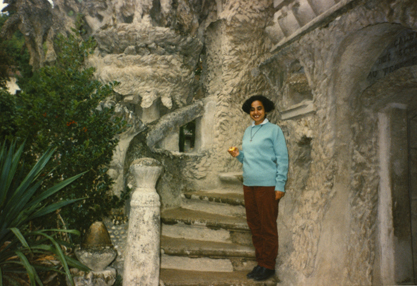 |
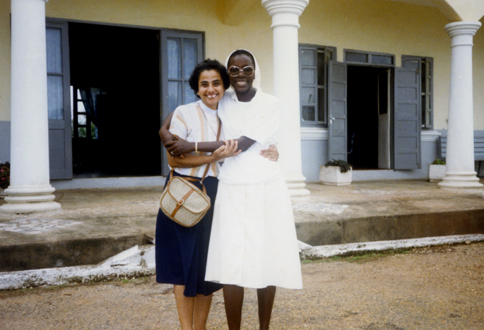 |
||
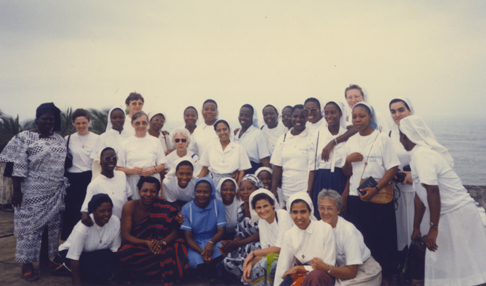 |
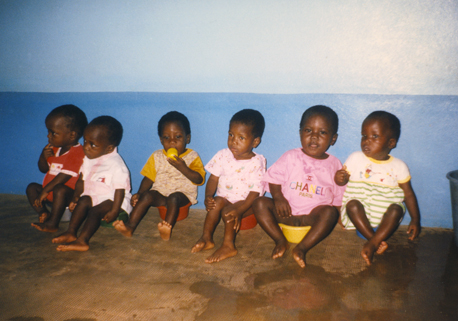 |
||
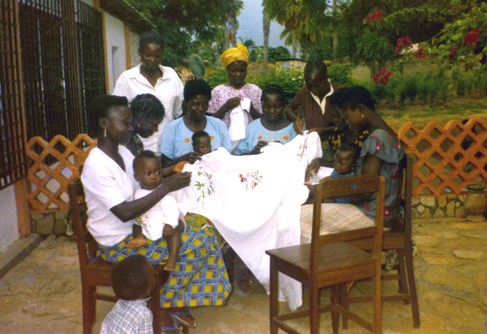 |
|
||
 |
 |
||
 |
 |
||
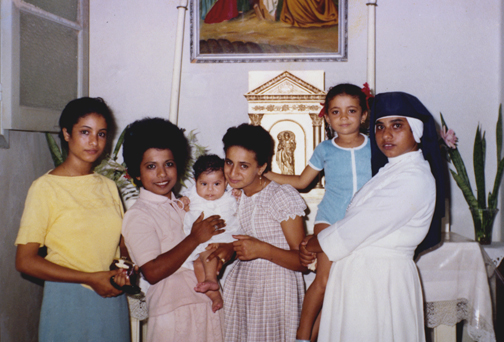 |
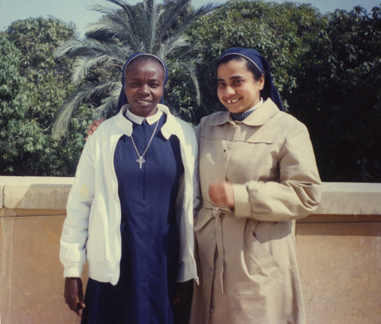 |
||
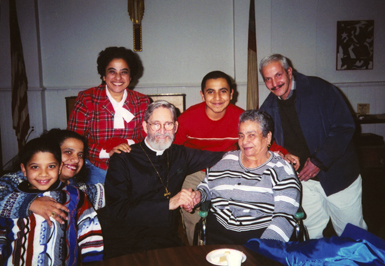 |
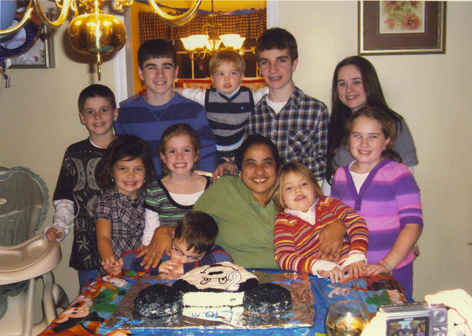 |